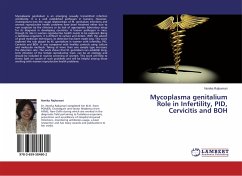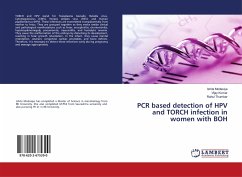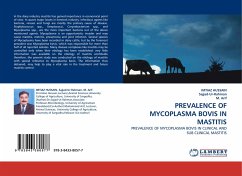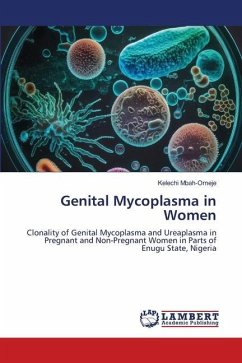
Mycoplasma genitalium Role in Infertility, PID, Cervicitis and BOH
Versandkostenfrei!
Versandfertig in 6-10 Tagen
24,99 €
inkl. MwSt.

PAYBACK Punkte
12 °P sammeln!
Mycoplasma genitalium is an emerging sexually transmitted infection worldwide. It is a well established pathogen in humans. However, investigations into the causal relationships of M. genitalium infections and woman reproductive health problems have been hindered either due to non suspicion by the clinicians or by lack of appropriate laboratory setup for its diagnosis in developing countries. A known pathogen in men, though its role in women reproductive health needs to be explored. Being a fastidious organism, it is difficult to culture and detect. With the advent of good molecular techniques...
Mycoplasma genitalium is an emerging sexually transmitted infection worldwide. It is a well established pathogen in humans. However, investigations into the causal relationships of M. genitalium infections and woman reproductive health problems have been hindered either due to non suspicion by the clinicians or by lack of appropriate laboratory setup for its diagnosis in developing countries. A known pathogen in men, though its role in women reproductive health needs to be explored. Being a fastidious organism, it is difficult to culture and detect. With the advent of good molecular techniques, its detection has been made easy. This work explored the role played by M. genitalium in women with Infertility, PID, Cervicitis and BOH. It was compared with healthy controls using culture and molecular methods. Taking of more than one sample type increases the detection rate. The work shows that M. genitalium can establish long-term infection of the female reproductive tract, can be an etiology and should be included in routine screening of women. This work will help to throw light on causes of such problems and will be helpful among those working with women reproductive health problems.












